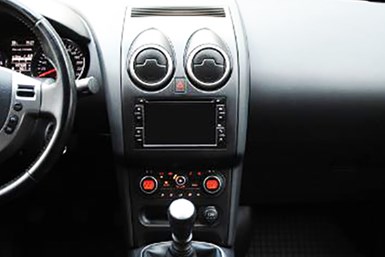Eastman Touts Bio-Plastic for Interior Applications
Eastman Chemical Co. says is touting a “green” alternative to traditional petroleum-based plastics for Class-A painted interiors surfaces.
#interior
Kingsport, Tenn.-based Eastman Chemical Co. says it has developed a “green” alternative to traditional petroleum-based plastics for Class-A painted interiors surfaces.

The company’s Treva cellulose-based thermoplastic is derived from trees and other recycled materials. Nearly 50% of the material’s content is bio-based, according to the supplier.
Eastman’s carbon renewal technology breaks down waste plastics into molecular-level building blocks, which enables the materials to be reused instead of being sent to a landfill. The company expects to use 50 million lbs. of waste plastic next year.
Eastman claims there is no performance degradation or cost penalty in the recycled biomaterial. The company says Treva also has exhibited similar or better paint adhesion characteristics than polycarbonate-ABS plastics in tests.
RELATED CONTENT
-
On Electric Pickups, Flying Taxis, and Auto Industry Transformation
Ford goes for vertical integration, DENSO and Honeywell take to the skies, how suppliers feel about their customers, how vehicle customers feel about shopping, and insights from a software exec
-
Things to Know About Cam Grinding
By James Gaffney, Product Engineer, Precision Grinding and Patrick D. Redington, Manager, Precision Grinding Business Unit, Norton Company (Worcester, MA)
-
Multiple Choices for Light, High-Performance Chassis
How carbon fiber is utilized is as different as the vehicles on which it is used. From full carbon tubs to partial panels to welded steel tube sandwich structures, the only limitation is imagination.








